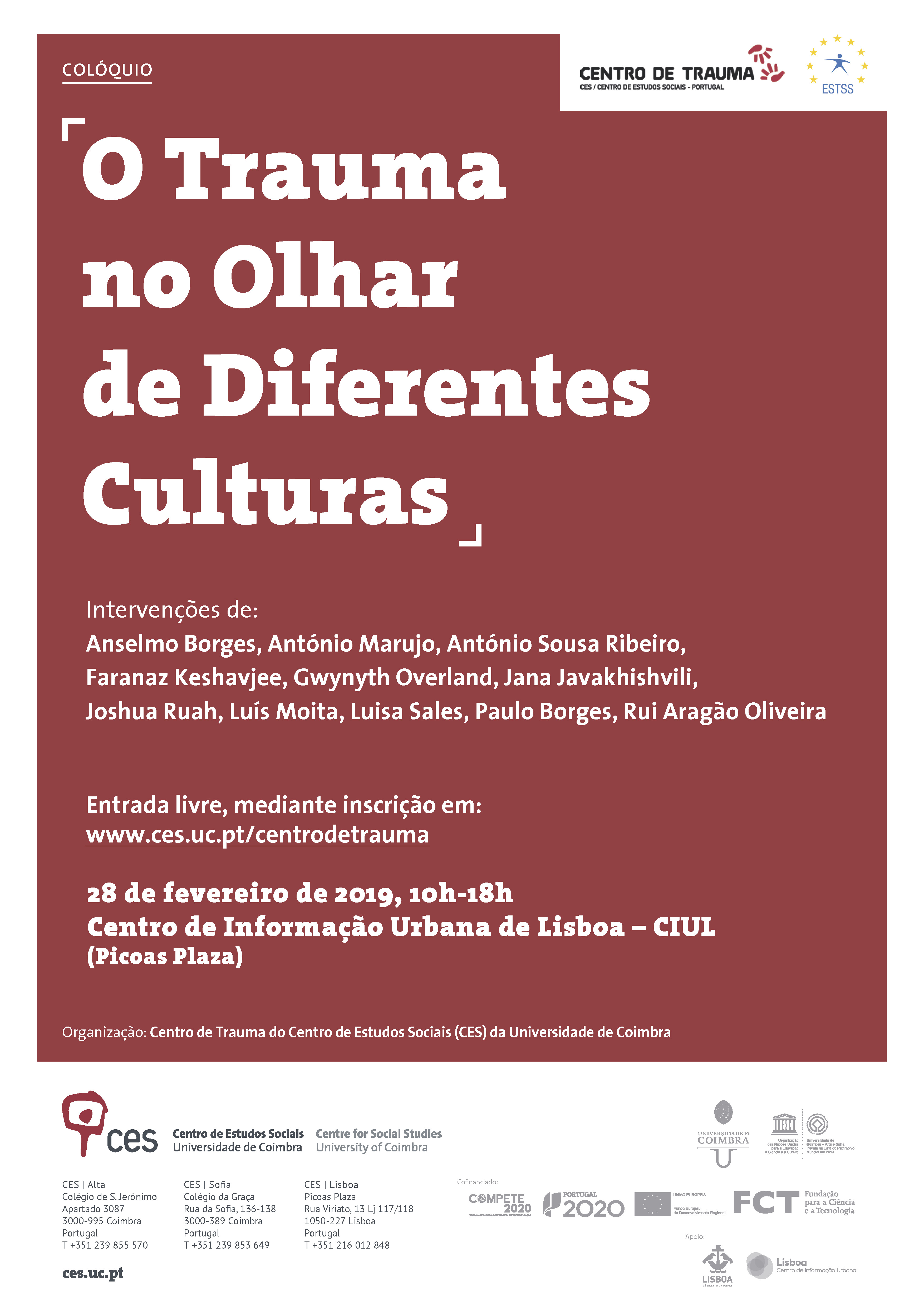Colóquio
O Trauma no Olhar de Diferentes Culturas
28 de fevereiro de 2019, 10h00
Centro de Informação Urbana de Lisboa - CIUL
Apresentação
A inscrição religiosa em diversas áreas do conhecimento é incontestável. Na história da medicina o científico e o espiritual se misturam - a origem da doença, a explicação de sintomas e a prática médica fundavam-se tanto na tradição empírica, como em crenças espirituais; no direito, a religião influenciou o modelo atual de leis e sentenças e em alguns países os escritos religiosos ainda são uma ferramenta para organização social. Como tal, as religiões participam do desenvolvimento científico, político e cultural.
Conhecidos nomes da filosofia e psicologia, como Thomas Hobbes, Michael Foucault e Sigmund Freud dedicaram uma parte de suas carreiras para a compreensão da crença religiosa e suas repercussões no comportamento e sofrimento humano. O conceito de pecado e o medo da punição eram vistos como necessários para manter a ordem social. Entretanto, sabemos que tais conceitos provocam "sofrimento moral" e podem levar ao sentimento de culpa. Considerando o papel das religiões nas representações que o indivíduo faz sobre seus desejos, pensamentos, e também de suas reações diante de adversidades, questionamos a influência da cultura religiosa no estabelecimento do trauma psicológico. Após uma experiência traumática, se sua história é marcada pela presença da religião, ou sua família e comunidade são organizadas através do ensino religioso, as representações que fará do acontecimento traumático poderão ser afetadas por discursos que intensificam os efeitos emocionais e sintomáticos. Ou, por outro lado, a religião pode ser o meio de lidar com o trauma sendo, muitas vezes, uma estratégia de coping muito eficaz.
São mais dúvidas do que certezas que discussões sobre as religiões nos colocam e, talvez, por isso nos lançamos mais uma vez no desafio de abordar um assunto tão controverso, mas tão interessante. O presente colóquio quer trazer para discussão diferentes olhares para a forma que as religiões elaboram o sofrimento após um evento traumático, seria um stressor secundário ou uma positiva estratégia de coping? E que implicações poderemos elaborar para a prevenção do trauma psicológico e para a sua mitigação em contexto clínico?
Inscrição gratuita, mas obrigatória.
Organização: Centro de Trauma do Centro de Estudos Sociais (CES) da Universidade de Coimbra
Apoio




